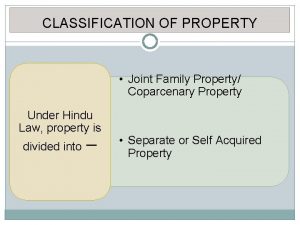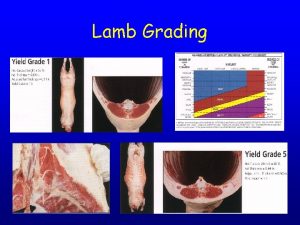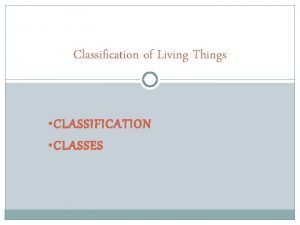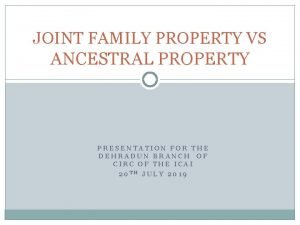CLASSIFICATION OF PROPERTY Joint Family Property Coparcenary Property











- Slides: 11

CLASSIFICATION OF PROPERTY • Joint Family Property/ Coparcenary Property Under Hindu Law, property is divided into – • Separate or Self Acquired Property

CLASSIFICATION OF PROPERTY • Sapratibandha Daya( Obstructed Heritage) Under Hindu Law, property is also divided into – • Apratibandha Daya (Unobstructed Heritage)

UNOBSTRUCTED HERITAGE Property inherited by a Hindu Male from a direct male ancestors within the 3 generations Property inherited from father, father’s father (grandfather) and father’s father ( greatgrandfather) Devolves by Survivorship

OBSTRUCTED HERITAGE Property inherited by a Hindu Male from any other relation is called the obstructed heritage Property inherited from uncle, nephew, brother etc. Devolves by inheritance

ANCESTRAL PROPERTY Property inherited from father, father’s father or father’s father (under Section 8 – Hindu Succession Act) Property inherited from maternal grand-father Property inherited from any other relation

PROPERTY INHERITED FROM FATHER, FATHER’S FATHER Property inherited by a Hindu Male from a direct male ancestors within the 3 generations Property inherited from father, grandfather and great- grandfather Property devolves to another by Survivorship

Section 8 – Hindu Succession Act Under old Hindu Law, when a son inherits property from his father , he will take it as a joint family property Mr. A inherits the property from his father. Mr. A has three sons – B, C and D. Now, the property in the hands of A, B, C and D will be joint family property

Section 8 of Hindu Succession Act provides that – When a Hindu inherits the [property from the father , he takes it as a separate property and not as joint family property vis-a vis his sons Mr. A inherits the property from his father. Mr. A has three sons – B, C and D. Now, acc to Sec 8 - The property in the hands of A, B, C and D will be separate property and not as joint family property

SOME EXAMPLES OF ANCESTRAL OR SELF ACQUIRED PROPERTY Property inherited from a paternal ancestor is ancestral property. Property inherited from maternal grand father is not ancestral property , but it is his separate property. Property inherited from females will be his separate property. Property obtained by gift or will from a paternal ancestor depends on facts of case Additions - property purchased or acquired out of the income or with the assistance of ancestral property would be ancestral property. Property purchased out of sale proceeds of ancestral property is also ancestral property.

PROPERTY THROWN INTO COMMON STOCK – DOCTRINE OF BLENDING when a coparcener mixes his separate property with the joint family property, and deals with his separate property in a manner that he leaves no doubts that he wants to treat it as part of the joint family property, such property becomes a joint family property. - This is known as ‘throwing in to the common stock’ - If he mixes his property with the joint family property it is known as blending.

SEPARATE PROPERTY All property other than joint family or coparcenary property is separate property. Even if a hindu is a member of a joint family, he may possess separate property. The term self-acquired indicates that the property has been acquired by a coparcener by his own means without assistance of family funds.





















